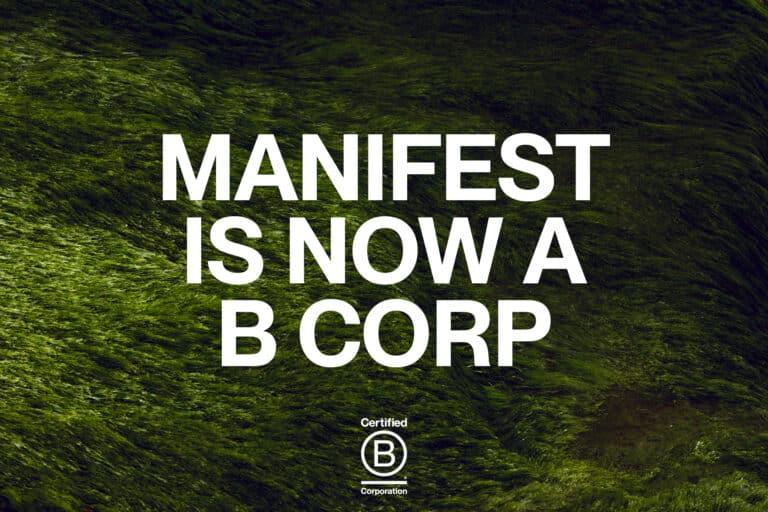Manifest is calling out creative agencies profiting from fossil fuels and other ‘ethically compromised’ industries, with a cash dividend for brands who switch from a fossil fuel-supporting agency.
As an incentive for brands to check their agencies’ ethical background and client roster, Manifest is offering a ‘planetary dividend’ for those choosing to switch, in the form of 10 per cent of fees donated to regulated reforestation projects for the first year of working together.
The incentive applies to both competitive and non-competitive pitch processes, and brands moving away from those supporting fossil fuel industries as outlined by the Clean Creatives movement.
The announcement comes as the global comms group, which has offices in Manchester as well as globally in NY, LA, Stockholm and Melbourne, announces its freshly minted B-Corp status and a new brand identity, website and corporate structure, designed by its in-house brand strategy team to better communicate the integrated agency’s mission to ‘build brands that change the world’.
Manifest founder and group CEO Alex Myers said: “There are still over 230 major agencies working with fossil fuel clients. That’s an industry legacy nobody should be proud of. And to be honest, it’s a bit embarrassing nobody talks about it more.”
“Brands are often unknowingly bedfellows with some of the world’s biggest polluters through their agencies’ client rosters, but programmes like B-Corp provide an infrastructure for brands to be confident in the ethical and environmental practices of their creative partners. That’s why it’s not just a significant programme for Manifest, but for the industry as a whole.”
Manifest scored 97.4 in its B-Corp assessment process, 17.4 points above qualification and one of the highest scoring agency networks. The process analyses not only the agency’s governance structure, environmental impact and behaviours as an employer, but also the nature of the work it produces, and who it produces it for.












